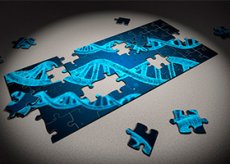New publications
Immunocytes can activate tumor growth
Last reviewed: 02.07.2025

All iLive content is medically reviewed or fact checked to ensure as much factual accuracy as possible.
We have strict sourcing guidelines and only link to reputable media sites, academic research institutions and, whenever possible, medically peer reviewed studies. Note that the numbers in parentheses ([1], [2], etc.) are clickable links to these studies.
If you feel that any of our content is inaccurate, out-of-date, or otherwise questionable, please select it and press Ctrl + Enter.

Scientists from the Washington University School of Medicine in St. Louis have noted that immunocytes, which are designed to protect the body from diseases, can in some situations help malignant cells themselves. Immunocompetent structures are part of the human immune system and participate in the formation of an immune response.
Tumor processes are triggered by damage to healthy cells and their uncontrolled reproduction. However, the rate of growth of the formation, as it was discovered, depends not so much on the rate of division of malignant cells, but on how quickly they are identified by the immune system.
Researchers explain that targeted destruction of individual immune cells can slow down the growth of tumors in the brain of patients with a gene mutation of NF1 (responsible for encoding the protein neurofibromin). Patients with this mutation have a large number of birthmarks on their bodies. These are benign tumors, but at the same time, such people have an increased risk of developing malignant tumors. For example, they are more susceptible to developing a low-grade brain tumor, the so-called optic glioma, which damages the optic nerve, which connects the brain with the organ of vision.
This gene mutation is an unstable disease: doctors cannot predict in advance what kind of tumor a patient will develop, how fast it will grow, and what its prognosis is. All this not only greatly complicates diagnosis, but also prevents determining the treatment plan.
To better understand the processes of rapid tumor growth, the researchers separated five lines of rodents with different genetic disorders of the NF1 gene and another part of the genome. It was found that in three lines, the tumor had already entered the growth stage literally in the third month after birth. In rodents belonging to the fourth line, tumors began to develop starting from six months after birth, and in the fifth line, tumors did not develop at all.
Then the scientists separated the tumor cells from the carriers and grew them in laboratory conditions. It was found that their growth rate was not so rapid, regardless of the type of line. A more detailed study of this issue allowed us to conclude that the general development of oncology in rodents is explained by the presence of two types of immunocytes in the structure of neoplasms - T-cells and microglia. The researchers determined that tumor cells independently produced proteins that attracted immunocytes to them. This led to increased growth of the formation.
Information about the study is presented in the journal Neuro Oncology (academic.oup.com/neuro-oncology/advance-article-abstract/doi/10.1093/neuonc/noz080/5485427?redirectedFrom=fulltext).
